Faculty Publications
St. Jerome's University faculty members participate in a broad range of research projects in a variety of disciplines. The following list represents the books that have been authored or edited by our faculty. These books are available in the St. Jerome’s University Library. For a full list of publications produced by individual faculty members, please refer to the web directory and search by individual names: https://www.sju.ca/directory
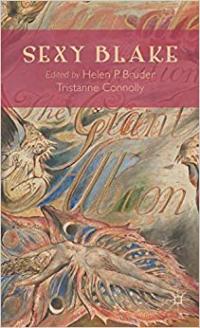 Link to Catalogue
Link to Catalogue
|
Bruder, Helen P., and Tristanne Connolly, eds. Sexy Blake. Hampshire, UK: Pagrave Macmillan, 2013. This book lays bare numerous sexy Blakes, arguing for both chastity and pornography, violence and domination as well as desire and redemption, and also journeying in the realms of conceptual sex and conceptual art. Fierce tussles over the body in, and the body of, the poet-artist's work celebrate Blakean attractions and repulsions. [Source: publisher's website] |
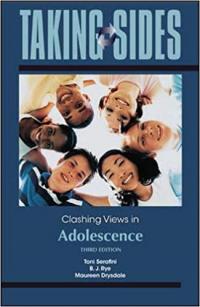 Link to Catalogue
Link to Catalogue
|
Serafini, Toni, BJ Rye, and Maureen Drysdale. Taking Sides: Clashing Views in Adolescence. 3rd ed. New York, NY: McGraw-Hill Education, 2013. Taking Sides volumes present current controversial issues in a debate-style format designed to stimulate student interest and develop critical thinking skills. Each issue is thoughtfully framed with Learning Outcomes, an Issue Summary, an Introduction, and an Exploring the Issue section featuring Critical Thinking and Reflection, Is There Common Ground?, and Additional Resources. Taking Sides readers also offer a Topic Guide and an annotated listing of Internet References for further consideration of the issues. An online Instructor's Resource Guide with testing material is available for each volume. Using Taking Sides in the Classroom is also an excellent instructor resource. Visit www.mhhe.com/takingsides for more details. [Source: Amazon.ca] |
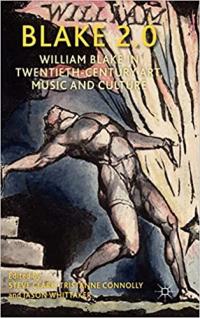 Link to Catalogue
Link to Catalogue
|
Clark, Steven, Tristanne Connolly, and Jason Whittaker, eds. Blake 2.0: William Blake in Twentieth-Century Art, Music and Culture. Houndsmills, UK: Pagrave Macmillan, 2012. Blake said of his works, 'Tho' I call them Mine I know they are not Mine'. So who owns Blake? Blake has always been more than words on a page. This volume takes Blake 2.0 as an interactive concept, examining digital dissemination of his works and reinvention by artists, writers, musicians, and filmmakers across a variety of twentieth-century media. [Source: publisher's website] |
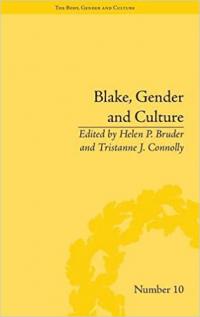 Link to Catalogue
Link to Catalogue
|
Bruder, Helen P., and Tristanne Connolly, eds. Blake, Gender and Culture. London, UK: Pickering & Chatto, 2012. Blake's combination of verse and design invites interdisciplinary study. The essays in this collection approach his work from a variety of perspectives including masculinity, performance, plant biology, empire, politics and sexuality. [Source: Amazon.ca] |
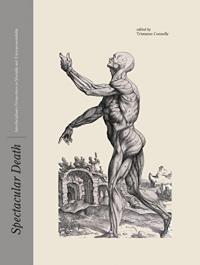 Link to Catalogue
Link to Catalogue
|
Connolly, Tristanne, ed. Spectacular Death: Interdisciplinary Perspectives on Mortality and (Un)representability. Bristol, UK: Intellect, 2011. A collection of essays on the medical and social articulation of death, this anthology considers to what extent a subject as elusive as death can be examined. Though it touches us all, we can perceive it only in life – with the predictable result that we treat it either as a clinical or social problem to be managed or as a phenomenon to be studied quantitatively. This volume goes beyond these models to self-reflexively question how the management of death is organized and motivated and the ways that death is at once feared and embraced. Drawing on the very latest in the medical humanities, Spectacular Death gives us an enlightening new perspective on death from the classical world to the twenty-first century. [Source: publisher's website] |
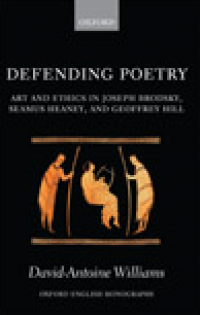 Link to Catalogue
Link to Catalogue
|
Williams, David A.. Defending Poetry: Art and Ethics in Joseph Brodsky, Seamus Heaney, and Geoffrey Hill. Oxford, UK: Oxford University Press, 2010. Defending Poetry studies the tradition of poetic defence, or apologia, as it has been pursued and developed by three of the twentieth century's leading poet-critics: Joseph Brodsky, Seamus Heaney, and Geoffrey Hill. It begins with an extended introduction to philosophical debates over the ethical value of literature from Plato to Levinas and continues by situating these three poets as in one sense historically continuous with the defences of Horace, Sidney, Coleridge, and Shelley, but also as drastically other. This otherness is bounded on one side by the example of T. S. Eliot's career-long contemplation of the ideal of poetic 'integrity', and on the other by a collective recognition of the twentieth century's great horrors, which seem to corrode all associations of art and the good. Through close readings of the poems and prose essays of Brodsky, Heaney, and Hill, Defending Poetry makes a timely intervention in current debates about literature's ethics, arguing that any ethics of literature ought to take into account not only poetry, but also the writings of poets on the value of poetry. [Source: Amazon.ca] |
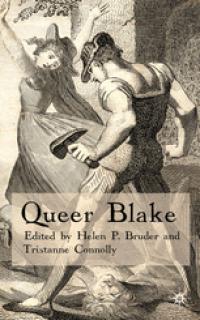 Link to Catalogue
Link to Catalogue
|
Bruder, Helen P., and Tristanne Connolly, eds. Queer Blake. Houndsmills, UK: Pagrave Macmillan, 2010. Numerous claims have been made for a sexual Blake, from post-lapsarian pessimist to free-loving hippie. Queer Blake raises a flag for the weird, perverse, camp and gay directions of the artist's life and work. The contributors occupy diverse positions, illustrating what fresh interpretations result when heterosexuality is ditched as an ideal. [Source: publisher's website] |
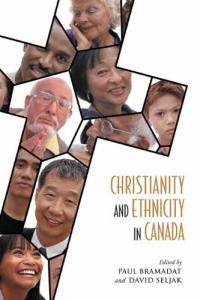 Link to Catalogue
Link to Catalogue
|
Bramadat, Paul, and David Seljak, eds. Christianity and Ethnicity in Canada. Toronto, ON: University of Toronto Press, 2008. Over the past decade, scholars and policy makers interested in Canadian multiculturalism have begun to take religion much more seriously. Moreover, Christian communities have become increasingly aware of the impact of ethnic diversity on church life. However, until very recently almost no systematic academic attention has been paid to the intersection between the ethnic and religious identities of individuals or communities. This gap in both our academic literature and our public discourse represents an obstacle to understanding and integrating the large numbers of "ethnic Christians," most of whom either join existing Canadian churches or create ethnically specific congregations. In Christianity and Ethnicity in Canada, eleven scholars explore the complex relationships between religious and ethnic identity within the nine major Christian traditions in Canada. The contributors discuss the ways in which changes in the ethnic composition of these traditions influence religious practice and identity, as well as how the nine religious traditions influence communal and individual ethnic identities. An introductory chapter by Paul Bramadat and David Seljak provides a thorough discussion of the theoretical, historical, and empirical issues involved in the study of Christianity and ethnicity in Canada. This volume complements Religion and Ethnicity in Canada in which the authors address similar issues within the six major non-Christian communities in Canada, and within Canadian health care, education, and politics. [Source: publisher's website] |
 Link to Catalogue
Link to Catalogue
|
Acton, Carol. Grief in Wartime: Private Pain, Public Discourse. Basingstoke, UK: Pagrave Macmillan, 2007. An examination of private narratives of loss in wartime and publicly legitimized forms of grieving. Drawing on sources such as diaries, poetry and weblogs and using gender as an analytic category, the book looks at men's and women's experiences of war 'at home' and 'at the front' and spans the two World Wars, the Vietnam War and the war in Iraq. [Source: publisher's website] |
 Link to Catalogue
Link to Catalogue
|
Perrin, David B.. Studying Christian Spirituality. New York, NY: Routledge, 2007. This book provides a new introduction to the study of Christian spirituality, exploring it through the human sciences and ranging from philosophy and hermeneutics to psychology, history, sociology and anthropology. Systematic and progressive, it introduces the key approaches and shows how they relate to the understanding, study and practice of spirituality. Covering a vast amount of ground - from traditional themes such as images of God, spiritual direction and pilgrimage to more contemporary issues, such as place and space, cyberspace and postcolonialism - the author takes an ecumenical, inclusive stance, allowing the book to be used in a wide variety of courses and across denominations. [Source: publisher's website] |